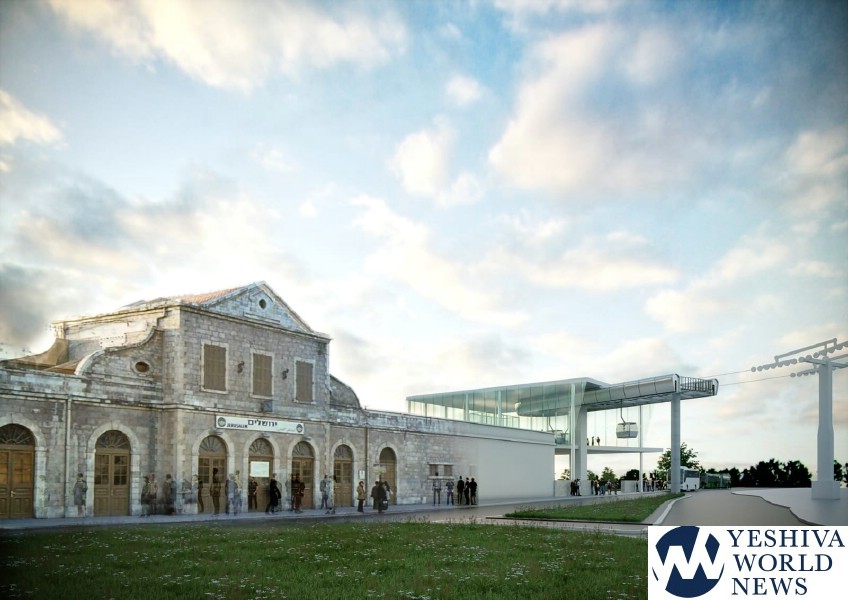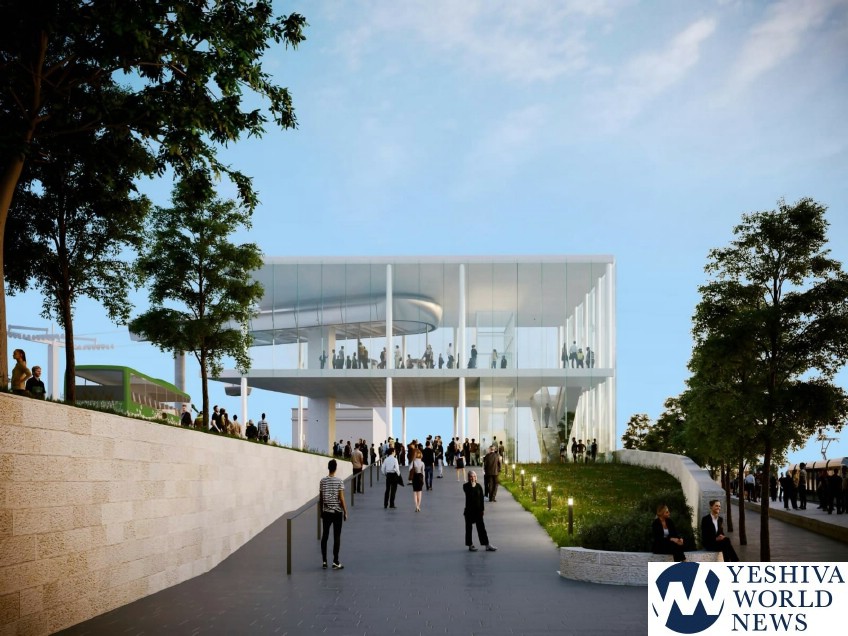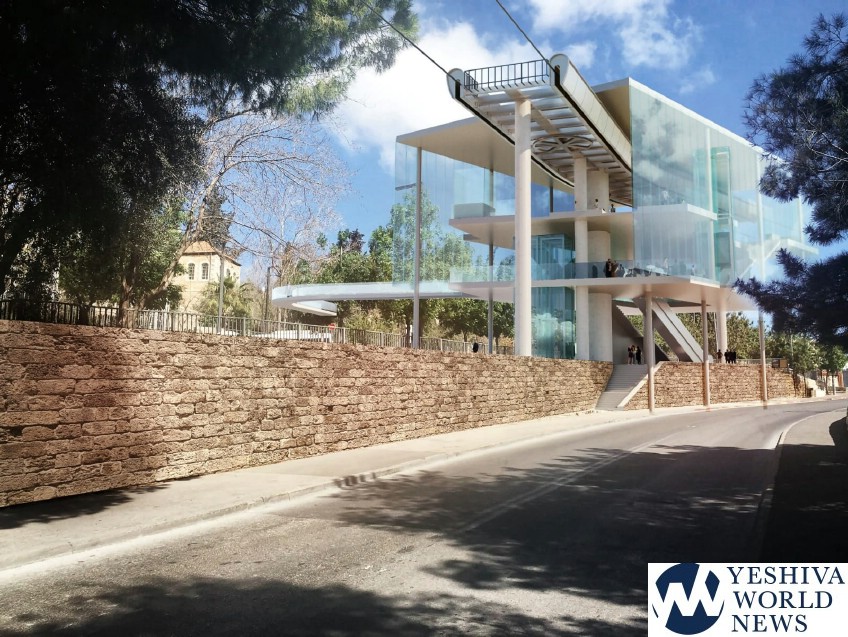(PHOTOS IN EXTENDED ARTICLE)
The cable car plan for the Kosel Plaza has been approved by the National Infrastructure Committee and submitted to the government for approval.
On Monday, the National Infrastructure Committee approved the plans for the cable car to the Kosel, which will now be sent for government approval. The new cable car will provide a transportation solution for millions of visitors each year at the Kosel and Old City and will also serve as a unique tourist attraction. This is a joint project between the Jerusalem Municipality, the Jerusalem Development Authority, and the Ministries of Tourism, Transport, and Jerusalem Heritage and Affairs.
Mayor of Jerusalem, Moshe Leon: “The cable car will enable millions of visitors to the Kosel to reach the city center and to experience the beauty of the capital of Israel from above. This unique and innovative and tourist attraction will dramatically increase accessibility to the city’s holy sites and provide a special experience for residents and visitors who come year-round to see Jerusalem holiness and history.”
The cable car will be integrated into the mass transportation system, and will transport 3,000 passengers per hour in each direction at 21 KPH (13 MPH). This significant infrastructure project, unlike any other in the world, will raise the level of public transport service, making it more efficient and less crowded for one of the capital’s most trafficked areas, and make the Old City’s religious and historic sites accessible for people with disabilities.
The cost and duration of the cable car construction are significantly less than other transportation options, and the construction period will not harm the daily life of the city. It is a green and environmentally friendly means of transportation, which will reduce noise, air pollution, traffic of public and private vehicles, and will preserve the special topography of the southern basin of the Old City. In addition, the cable car will allow more free passage of visitors, tourists, residents and merchants – including the 135,000 pedestrians that pass through in an average week.
The project will have three stops: The First Station (the old train station), Guy Ben-Hinnom, and the Kedem Center.
“The approval of the plan by the National Infrastructure Committee after the hearing of all the objections is a significant milestone in the promotion of this important project,” said the Jerusalem Development Authority. “The integration of forces and cooperation between the Municipality and the Ministry of Jerusalem Affairs and Heritage together with the Ministry of Tourism enabled an orderly planning process. As part of the strategic development of the city, the cable car will significantly reduce traffic congestion around the Old City and increase access to the area for residents, tourists and merchants alike.”
The cable car project is expected to begin operations in 2021.
Photos show simulations of the cable car


(YWN Israel Desk – Jerusalem/Photo Credit: Jerusalem Development Authority)











